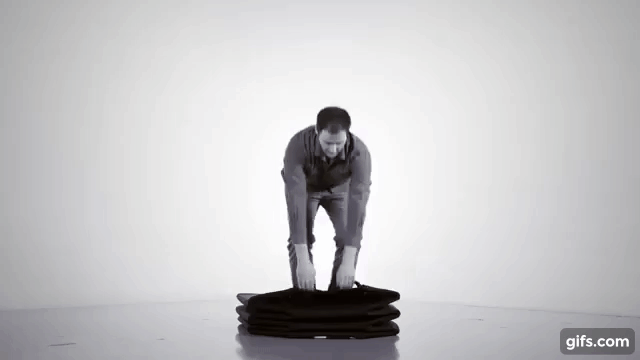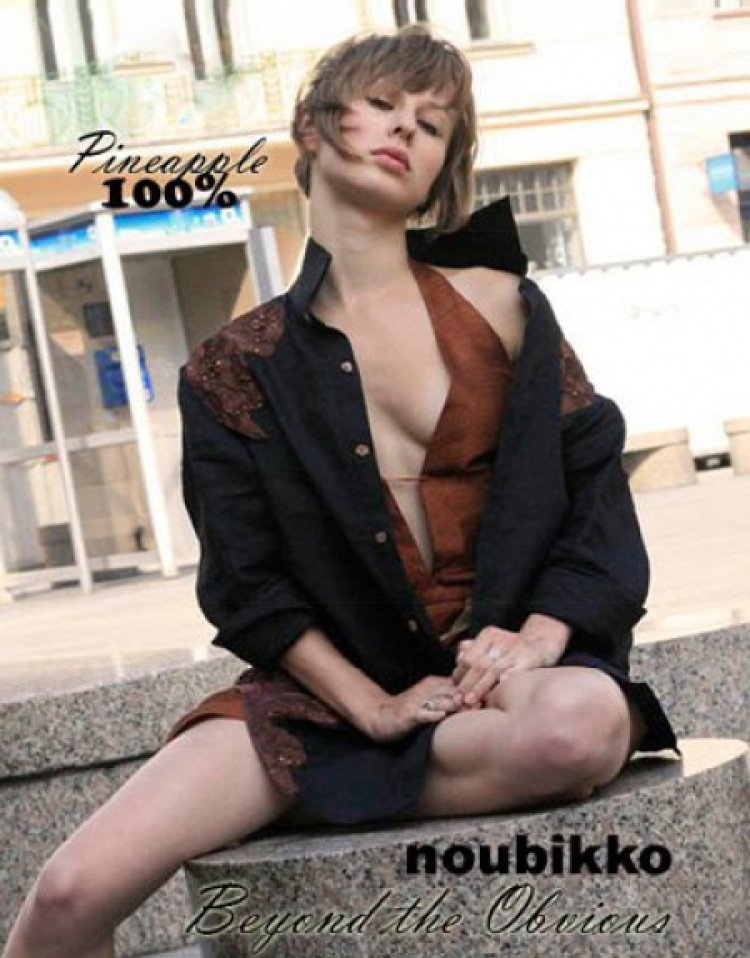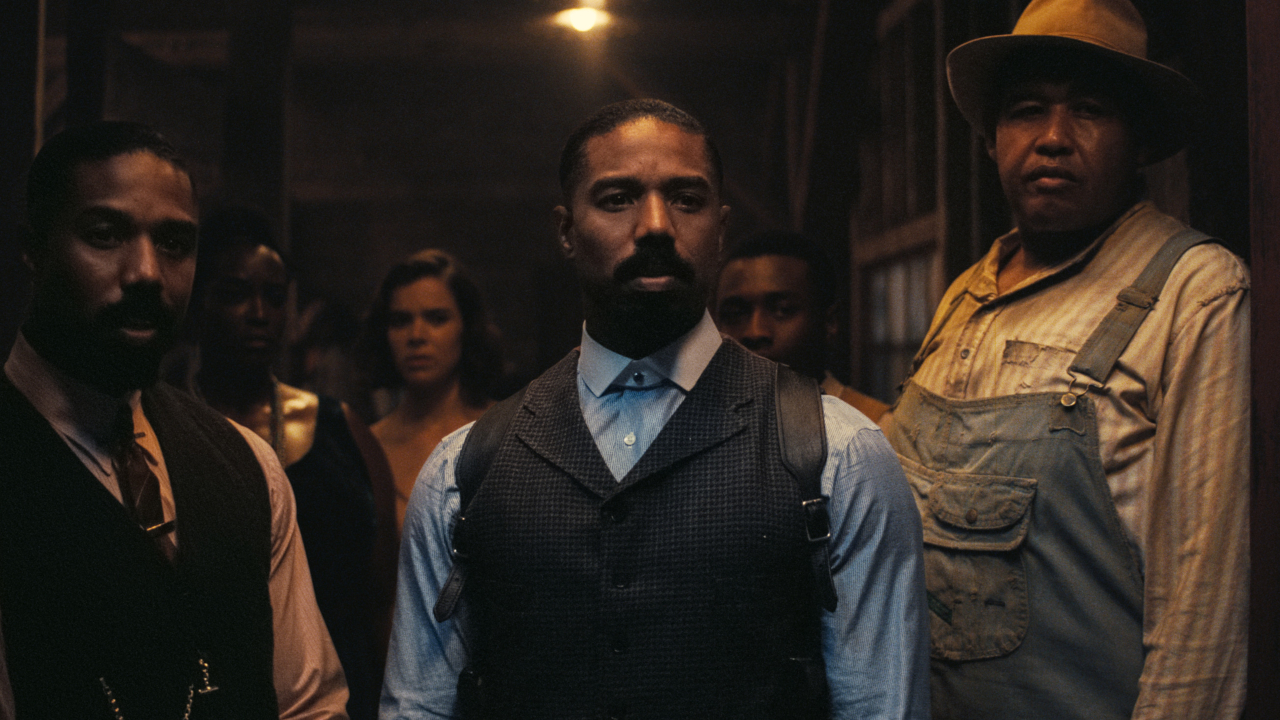London Film Festival 2024 Preview
A preview of this year's event.

London isn’t what you think. Or at least, it’s not what I thought it was. I moved here from the States back in 2016 and was shocked to find that it doesn’t perpetually rain. Not really, anyway. It drizzles. It’s gray. It’s a mild climate year-round, but it also gets weirdly hot and bone-chattering chilly. These nasty habits are made worse by the advent of the fall season (sorry, “autumn”).
As we lurch into the colorless doldrums of the winter season after our blessed week-long summer, the shining neon lights of the British Film Institute, looming gracefully over the River Thames, are a perennial comfort. The BFI sits on the Southbank, not far from the cabochon glow of the Winter Market, set to spring up like a luminiferous metal flower in November.
And so, we turn to the BFI to save us. Well, I do, anyway. I can think of nothing better than nestling into an old cinema seat while the elements wait impatiently outside. This year’s London Film Festival is the perfect excuse to do that again and again, for days on end, starting today.
It helps that the cinemas are also showing movies that already have my rapt attention before I’ve seen even one frame. Take “Blitz,” the headlining new Steve McQueen film about what it was like for the British during World War II. (Contrary to what I learned in school, apparently the war did not in fact start with the attack on Pearl Harbor.)
McQueen had a rough go of it after his four-hour COVID/Nazi doc “Occupied City” inspired a mix of praise and backlash last year, but he seems to be back in his element with this historical epic. The impressive cast of “Blitz” is led by Saoirse Ronan, who just so happened to be at the same Old Vic showing of Tom Stoppard’s The Real Thing that I was the other night. I’m sure she’s writing about seeing me there, too.
Anyone who’s followed my writing on this site or elsewhere probably knows by now that I’m a sucker for animation. It’s what I focused on at school and it’s how I’d like to think I dream. I love it so much that every morning, I’m roused out of bed and fed toast by a stop motion Rube Goldberg machine designed by Wallace himself. Ask my partner, she’ll tell you it’s true.
I also like the work of Morgan Neville, the documentarian behind “Twenty Feet from Stardom” and “Won’t You Be My Neighbor?” So while I don’t know why he’s made “Piece by Piece” about singer Pharrell Williams in the style of “The Lego Movie”—or indeed why Pharrell is Neville’s next choice after covering overlooked divas and the incomparable Fred Rogers—I’m curious to see where he takes it.
It’s not often that I see biology explored on screen. Not the kind of biology I’m familiar with, I mean—cell culture, laminar flow hoods, three trillion little tubes with clear liquid that had better be labeled or that’s a few months’ work down the drain. So I was pleased to see that alongside “Blitz,” LFF will also feature the world premiere of Ben Taylor’s “Joy”: the true tale of how a nurse, scientist, and surgeon worked together to shift public perception and forge ahead on the miracle that is in vitro fertilization (IVF). James Norton, Thomasin McKenzie, and the effortlessly watchable Bill Nighy are set to portray the intrepid team. I have no doubt this will satiate my dream of watching a four-hour protocol unfold on a 30-foot light-filled canvas in real time, with none of that pesky human drama liable to get in the way.
Every year Andrea Arnold releases a movie, I feel a bit bad for everyone else. Arnold is one of the most incredible filmmakers around. Her incredible sense of cinematographic aesthetic permeates and accentuates every frame of her stories, be it the Instagram aspect ratio of the transcendent “American Honey” or the grimy, grainy world of “Fish Tank.” Arnold is unique in her ability to capture the lives of those who glide on the fringes of society and also exist at its heart. She enlivens the proceedings with a keen sense of rhythm and music; I damn near bounced out of “American Honey” when I first saw it years ago, its soundtrack still animating my limbs.
After a foray into documentary with “Cow,” she’s back with “Bird”: a “coming-of-age story” that promises “magical realism,” according to Leigh Singer’s summary in the LFF guidebook. “Bird” features first-timer Nykiya Adams in the lead with support from none other than Barry Keoghan. I say all of this to convince you to see it, but really I could have stopped at “Andrea Arnold.”
A discussion of British kitchen sink dramas would be nowhere if we didn’t discuss the legendary Mike Leigh, who if he were any more associated with the genre he’d be a faucet. “Hard Truths” is his first such film in 14 years (after historical forays into “Mr. Turner” and “Peterloo”). The movie features Michele Austin and Marianne Jean-Baptiste as sisters working through their relationship in the face of the relentless onslaught of life in The Big Smoke.
Alongside Leigh, I’m thrilled to see “The Florida Project” director Sean Baker back with “Anora,” a film about a sex worker whose love story leads her into the crosshairs of moneyed family interests. The ever-perspicacious Baker is anything but conventional and often shines a light exactly where it’s needed. His class-focused story sounds like it will provide a fresh coat of paint to that well-worn tale of partners who come from diametrically opposed worlds.
I’m queer and—at the risk of sounding like every American from the East Coast— a little bit Irish (I swear I’m a Murphy), so it was hard not to note the premiere of “Four Mothers.” Darren Thornton’s story of a queer Irish lad named Edward juggling the needs of his and his friends’ mothers sounds like a sweet mix of intergenerational shenanigans. I admit I’m not familiar with Thornton’s previous work, but if the film can capture a bit of that dry Irish wit amid the sentimentality, this one feels like it could be a sleeper favorite.
The LFF program this year is stuffed with contributions from all over the world. To take a few examples: Mati Diop’s “Dahomey,” a documentary exploration of French colonialism in Benin; Martinique’s own Madeleine Hunt-Erlich who hits the scene with the feminist family drama “The Ballad of Suzanne Césaire”; and Radu Jude’s “Eight Postcards from Utopia,” a film composed of Romanian commercials from after the country abandoned Communist governance. Many more still hail from rural Japan, Brazil, the Dominican Republic, Congo, and beyond, demonstrating the festival organizer’s commitment to reaching beyond America and Europe.
As we zoom to a close having barely scratched the surface, I can’t help but shout out a raft of animated films I’m incredibly excited to see. This is perhaps cheating, but I’ll start by highlighting the 4K restoration of Martin Rosen’s 1978 masterpiece, “Watership Down.” It was a film I’d never had the chance to see until a few weeks ago through an early LFF screening and now I cannot stop evangelizing about the rabbit war movie to everyone I meet.
Beyond the classics, there’s the wordless Latvian film “Flow” from Gints Zilbalodis that follows animals attempting to stay alive and afloat about which I’ve heard positive buzz. Over in Japan, Naoko Yamada brings her original story about boarding school, color auras, and garage bands together in the vibrant “The Colors Within.” Tomás Pinchardo Espaillat’s mixed media “Olivia & the Clouds” seems particularly intriguing as it fuses “a variety of animation styles” to explore “one woman’s relationship,” according to Diana Cipriano’s LFF synopsis.
The determinedly idiosyncratic Quay Brothers are also back, once again intent on unsettling us with their latest project, “Sanatorium Under the Sign of the Hourglass.” But perhaps most exciting for me is the return of two other stop motion virtuosos: French Claude Barras and Adam Elliot who hails from Australia. Barras is back after his incredible 2017 film, “My Life as a Zucchini,” with “Savages,” a film featuring an orangutan and a young girl that focuses on the mild, non-stressful theme of deforestation. Coming up from down under, Elliot returns with his follow-up to the sublimely tragic “Mary and Max,” “Memoir of a Snail.” The 1970s period film covers the story of twins separated in childhood.
For those unfamiliar with Barras and Elliot’s work, I cannot stress enough that they each seem to personally want to wrench out the hearts of everyone who sees their films. But folks: I am here for it. It’s what movies are for.
So, look, it may be the case that summer only lasts a week in England. It is a curse of this sunless island. But it is also the case that BFI’s London Film Festival lasts one and a half weeks. That’s a full half week more! What are we complaining about?




















